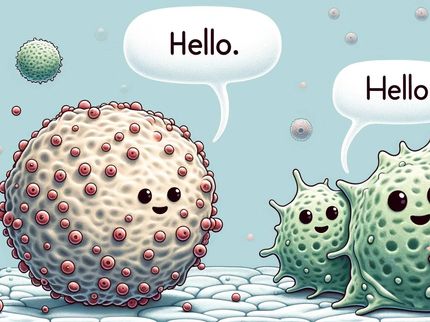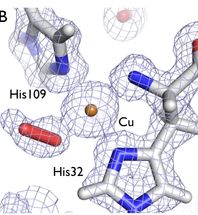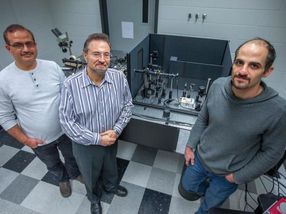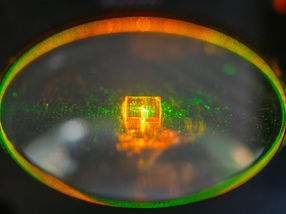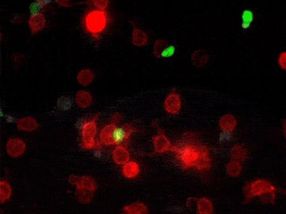Researchers confirm whole-genome sequencing can successfully identify cancer-related mutations
UT Southwestern Medical Center cancer researchers have demonstrated that whole-genome sequencing can be used to identify patients' risk for hereditary cancer, which can potentially lead to improvements in cancer prevention, diagnosis, and care.
This is the first study that has used whole-genome sequencing to evaluate a series of 258 cancer patients' genomes to improve the ability to diagnose cancer-predisposing mutations. The study is published in EBioMedicine.
"Whole-genome sequencing is a new genetic tool that can determine more of a person's DNA sequence than ever before. Our results show that nearly 90 percent of clinically identified mutations were confidently detected and additional cancer gene mutations were discovered, which together with the decreasing costs associated with whole-genome sequencing means that this method will improve patient care, as well as lead to discovery of new cancer genes," said Dr. Theodora Ross , Professor of Internal Medicine and Director of UT Southwestern's Cancer Genetics Program .
The physicians and genetic counselors in UT Southwestern's Cancer Genetics Clinic help patients assess their risk for many types of cancer, including kidney, skin, lung, breast, ovarian, colon, endocrine and prostate cancers. If a known genetic predisposition to cancer is found, Dr. Ross and her team counsel the patient about the best ways to detect early cancers or, better yet, prevent cancers from ever forming.
About 5 to 10 percent of all cancers are caused by known inherited gene mutations. These mutations are passed down from generation to generation. Mutations in the BRCA1 and BRCA2 genes are the most common cause of hereditary breast cancer. BRCA gene mutations are best known for their breast cancer risk, but they also cause increased risk for ovarian, prostate, pancreatic, and other cancers. In addition, there are many different genes, including ATM, CDH1, CHEK2, PALB2, PTEN, and TP53, that are associated with an increased risk for breast cancer, and researchers are continually discovering additional genes that may affect cancer predisposition.
In this study, researchers developed new methods to analyze the large amount of data generated by whole-genome sequencing. Specifically, Dr. Ross' team devised a method to compare the group of patients with BRCA1 or BRCA2 mutations to a group of patients without BRCA mutations. All expected BRCA1 and BRCA2 mutations were detected in the BRCA group, with at least 88.6 percent of mutations confidently detected. In contrast, different cancer gene mutations were found in the cohort without BRCA mutations.
"The results demonstrate that whole-genome sequencing can detect new cancer gene mutations in non-BRCA 'mystery' patients, demonstrating the added value whole-genome sequencing brings to the future cancer clinic," Dr. Ross said, although further investigation is needed in order to be able to interpret the precise clinical implications of the mutations found.
"Mystery patients are those who have a strong family history for cancer but after standard genetic testing, no genetic diagnoses are made. In our study, sequencing allowed us to discover novel candidate cancer gene mutations in mystery patients," said Dr. Ross, who holds the Jeanne Ann Plitt Professorship in Breast Cancer Research and the H. Ben and Isabelle T. Decherd Chair in Internal Medicine, in Honor of Henry M. Winans, Sr., M.D.
Most read news
Organizations
Other news from the department science

Get the analytics and lab tech industry in your inbox
By submitting this form you agree that LUMITOS AG will send you the newsletter(s) selected above by email. Your data will not be passed on to third parties. Your data will be stored and processed in accordance with our data protection regulations. LUMITOS may contact you by email for the purpose of advertising or market and opinion surveys. You can revoke your consent at any time without giving reasons to LUMITOS AG, Ernst-Augustin-Str. 2, 12489 Berlin, Germany or by e-mail at revoke@lumitos.com with effect for the future. In addition, each email contains a link to unsubscribe from the corresponding newsletter.

